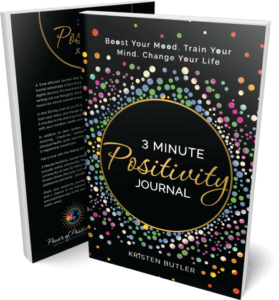Learn more about how mastering control of emotions can lead to inner peace, better relationships, and improved mental health.
Emotions have a profound impact on how we experience life. When they’re positive, they can fill our days with joy and fulfillment. But when emotions spiral out of control, they can make even the simplest tasks feel overwhelming.
Mastering the control of emotions is a key ingredient to boosting happiness, resilience, and well-being. While we can’t always prevent emotional responses, we can learn how to manage them effectively.
In this article, we’ll explore strategies for emotional regulation, the importance of emotional intelligence, and how taking charge of your emotions can improve your overall happiness.
Understanding Emotional Control
Many people mistakenly believe that the control of emotions means suppressing or ignoring their feelings. However, true emotional control is about recognizing and managing emotions healthily. Emotions are automatic responses to situations, and everyone experiences highs and lows.
The key is to develop strategies to process those emotions constructively. Psychologists emphasize that acknowledging your feelings is the first step in controlling them.
By recognizing and accepting emotions, you create space to respond thoughtfully, rather than reacting impulsively. When you can regulate how you respond to intense emotions—such as anger, sadness, or frustration—you make better decisions and experience more emotional stability.
Why Emotional Intelligence Matters
One of the most powerful tools in the control of emotions is emotional intelligence. Emotional intelligence refers to your ability to recognize, understand, and manage your own emotions, as well as the emotions of others.
It’s the foundation of successful communication and healthy relationships. People with high emotional intelligence are better equipped to navigate conflicts, understand others’ perspectives, and respond with empathy.
Building emotional intelligence involves three key components:
- Self-awareness: Recognizing your emotions and how they influence your thoughts and behavior.
- Self-regulation: Controlling impulsive feelings and managing your emotional reactions.
- Empathy: Understanding and recognizing the emotions of others, allowing for more compassionate interactions.
Improving emotional intelligence takes practice, but once mastered, it becomes easier to manage emotions and strengthen personal relationships.
Techniques to Improve Emotional Regulation
While emotions are an inevitable part of life, they don’t have to control you. There are several techniques to enhance emotional regulation and promote a more balanced mental state. These strategies empower you to process emotions healthily:
- Mindfulness and Deep Breathing: When emotions become overwhelming, pausing to breathe deeply can help reset your nervous system. Mindfulness practices, such as focusing on your breath or tuning into your surroundings, allow you to calm your mind and body in moments of stress. These techniques help you stay grounded, which is essential when trying to regain emotional control.
- Reframing Negative Thoughts: Cognitive reframing is a valuable tool for emotional control. Instead of viewing a stressful situation as purely negative, try to find a new perspective. This shift in mindset can reduce the intensity of negative emotions and help you approach challenges with greater clarity.
- Engaging in Physical Activity: Exercise is a well-known mood booster. Physical activity releases endorphins, the brain’s feel-good chemicals, which can reduce feelings of anxiety, depression, and stress. Regular movement also helps regulate your emotional state by providing an outlet for pent-up energy and frustration.
- Practicing Self-Care: Taking care of your physical and mental health is crucial for emotional control. Eating a nutritious diet, getting adequate sleep, and engaging in hobbies can significantly enhance your emotional well-being. When your body is well-nourished and rested, you’re better equipped to handle emotional challenges.
Identifying Emotional Triggers
One of the most effective ways to gain control over your emotions is by identifying the triggers that cause strong emotional reactions. Emotional triggers are situations, people, or environments that provoke a strong response, often leading to feelings of anger, sadness, or anxiety. These triggers are deeply personal and vary from person to person.
By identifying your emotional triggers, you can prepare yourself to respond in a more measured way. For example, if you know that a particular topic tends to make you angry, you can anticipate your response and take steps to remain calm.
Recognizing triggers before they lead to emotional outbursts allows you to pause, breathe, and choose a thoughtful response.
Benefits of Controlling Your Emotions
The benefits of mastering the control of emotions are vast. Those who practice emotional regulation tend to experience higher levels of happiness, lower stress levels, and better relationships. When emotions are managed effectively, they can enhance decision-making skills, improve communication, and increase resilience during challenging times.
Here are some key benefits of taking charge of your emotions:
- Increased Inner Peace: When you learn to manage your emotional responses, you feel more in control of your life. This sense of control leads to a greater sense of inner peace and emotional stability.
- Better Relationships: Emotional control helps you navigate conflicts more effectively. By managing your own emotions, you can respond to others with empathy and understanding, strengthening your personal and professional relationships.
- Improved Mental Health: Regular practice of emotional regulation can lower the risk of anxiety, depression, and other mental health challenges. Learning how to process and manage emotions helps prevent emotional overwhelm.
- Enhanced Resilience: The ability to remain calm under pressure is a valuable life skill. Controlling your emotions during stressful situations increases your ability to bounce back from setbacks and navigate difficult times with confidence.
Conclusion: Take Charge of Your Emotional Well-Being
Learning to master the control of emotions is a transformative process that can lead to greater happiness, peace, and resilience. By understanding your emotional triggers, practicing mindfulness, and engaging in regular self-care, you can develop the skills needed to regulate your emotional responses. Emotions are a natural part of life, but they don’t have to dictate your happiness.
If you’re looking for more ways to boost your emotional well-being, explore the resources offered at Positive Kristen’s offerings and Power of Positivity. You have the power to take control of your emotions—and your happiness!
The post Control of Emotions: How Taking Charge Boosts Your Happiness appeared first on Power of Positivity: Positive Thinking & Attitude.










